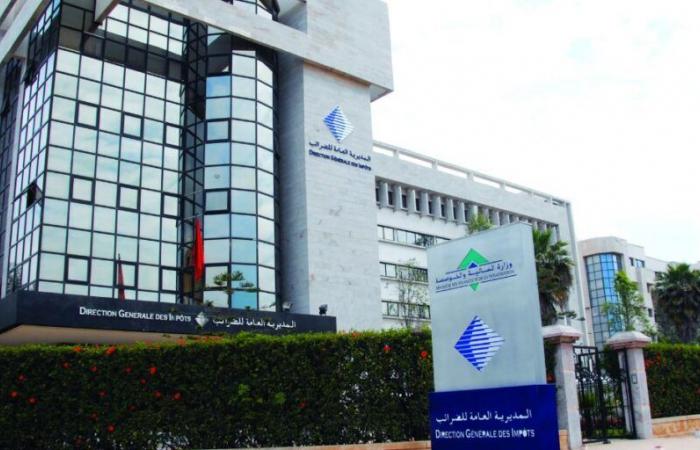In a letter addressed to the National Coordination of Chartered Accountants, the General Directorate of Taxes (DGI) shed welcome light on two key aspects for newly created companies: the actual start of operation which triggers tax obligations, and the temporary exemption from the minimum contribution to which they are eligible.
Have you created your box? The General Directorate of Taxes (DGI) explains to you when the time of accounts will ring, but also how to benefit from a generous welcome gift! When does a business actually start operating? And how can you benefit from the exemption from the minimum contribution during the first 36 months? the Tax Administration clarifies these essential questions for young companies.
In a recent letter addressed to the National Coordination of Chartered Accountants, the Tax Office provided important clarifications concerning the determination of the start date of companies and the terms of application of the 36-month exemption from the minimum contribution. (CM) for newly created companies.
This clarification responds to a request for clarification made by accounting professionals, in particular the president of the national coordination of chartered accountants, in a letter dated May 16, 2024.
When does the operation of a business actually begin?
According to the DGI, “the date to be taken into consideration for counting the exemption period is that which coincides with the start of effective operation, determined according to the sector of activity of the company concerned”. More precisely, she cites that for “production and marketing companies”, it is “the first operation of acquisition of goods and services for operating needs” which marks the kick-off. While for “service companies”, it is “the first service provided”.
This clarification helps to remove gray areas on a crucial subject for young companies. Indeed, as the tax authorities point out, “the exemption from the minimum contribution applies during the first thirty-six (36) months following the start date of operation”. But it specifies that “this exemption ceases to be applied at the end of the first sixty (60) months following the date of incorporation of the companies concerned”. It is therefore essential to clearly understand this notion of “start of effective exploitation”. As can be noted, the distinction made by the DGI between production/marketing companies and service companies is essential.
For the former, it is “the first operation to acquire goods and services for operating needs” which marks the effective start. This can be the purchase of raw materials, machines, hiring staff, renting commercial premises, etc. All these preparatory acts precede the concrete launch of the production or sale of goods/goods.
For service companies, on the other hand, the criterion used is “the first service provided”. This could be the first consulting mission, the first maintenance contract, the first training provided, etc. Unlike the productive/commercial sector where initial investments are often required, a service business can theoretically start from the first service invoiced to a client. In both cases, however, this pivotal date is of capital importance because it triggers the counting of the 36-month exemption period from the minimum contribution (CM).
Any delay in relation to the “real” start of operations can further reduce this precious fiscal window. This is why the DGI also insists on the fact that this exemption “ceases to be applied at the end of the first sixty (60) months following the date of incorporation” of the company. A ceiling which aims to avoid excesses and to encourage companies to reach a maturity allowing them to bear the normal tax burden.
Ultimately, clearly understanding this sometimes vague notion allows you to secure the tax situation of a young company. This can thus benefit from a substantial advantage in its crucial first years, provided that it scrupulously respects the regulatory framework laid down by tax legislation.
Eligibility conditions for exemption from the minimum contribution
Beyond determining the effective start date of operation, a pivotal date, the DGI also recalls the eligibility criteria for exemption from the minimum contribution.
According to article 164 of the General Tax Code (CGI), “companies must have the common company identifier and meet the obligations of declaring and paying taxes, duties and charges” to benefit from it. Let’s delve deeper into this subject: the first condition is that the company must have the “common identifier”.
This is a unique identifier assigned to each company when it is created by the company formalities service. A true “tax barcode”, this identifier makes it possible to link the company to a centralized file and to follow it in its various reporting and payment obligations. Without this identifier, it is impossible to enter the scope of the CGI and benefit from the tax regimes provided, such as exemption from the CM.
Beyond this identifier, the CGI conditions access to exemptions on compliance with “declaration obligations” by the company. This involves filing all required declarations on time: results declarations, value added tax (VAT) declarations, etc. A repeated failure to comply with these reporting obligations may result in the benefit of the exemption being called into question.
Finally, the last criterion is to “satisfy the obligations to pay taxes, duties and charges” provided for by the CGI. Even if the company is exempt from CM, it remains liable for other taxes such as VAT, corporate tax (if it is not in deficit), etc.
Failure to pay these amounts on time may also call into question the exemption regime. This requirement for tax regularity demonstrates the administration’s desire to grant this tax advantage only to companies that respect the legal and regulatory framework. This is a form of incentive to adopt virtuous and transparent tax behavior from the outset, a guarantee of sustainability for the young company.
No special formalities to complete
Regarding the formalities to be completed, the tax administration adopts a pragmatic approach. “From a tax perspective, the application of the exemption from the minimum contribution does not require any prior administrative formality or production of documents,” notes the DGI.
As the DGI clearly indicates, the application of this exemption “does not require any prior administrative formality or production of documents”.
Eligible companies therefore do not have to take any special steps or provide supporting documents in advance to benefit from it. This administrative simplicity reduces the procedural burden weighing on young companies from their creation. The DGI specifies that these companies “spontaneously declare their tax results and their turnover at the end of the financial year”.
This is part of the classic annual reporting obligations to which all companies are subject. No additional formalism is required. Companies meeting the conditions “systematically apply, where applicable, the MC exemption” on the basis of these results declarations. However, this procedural ease does not exempt the company from a potential subsequent tax audit by the administration.
The DGI therefore reserves “the right of control” to verify the actual eligibility of the company for the exemption and the sincerity of the declarations made. In the event of irregularities noted, tax adjustments and penalties may be applied.
This pragmatic approach makes it possible to reduce administrative formalities from the start, which makes life easier for young companies. But it does not exempt you from a duty of transparency and tax compliance, under penalty of exposure to adjustments in the event of an audit. It is a subtle balance between simplification and corporate accountability. The administration initially trusts, but reserves a right of inspection to ensure effective compliance with tax legislation.
A major challenge for VSEs/SMEs
This clarification of the rules relating to the start of operation and the exemption from the CM is of capital importance, in particular for very small enterprises (VSE) and small and medium-sized enterprises (SME) which constitute the backbone of the economic fabric. national. By offering them a tax break during the first critical years of their development, this measure aims to promote their sustainability and growth.
However, some experts believe that gray areas remain, calling for a more global overhaul of the tax regime applicable to start-ups.
Others emphasize the need to accompany these measures by strengthening mechanisms for access to financing and technical and managerial support. In any case, this development by the DGI is a step in the right direction to clarify the regulatory and tax environment in which entrepreneurs operate. An essential condition for unleashing creative energies and stimulating the emergence of national champions, drivers of growth and employment.
Bilal Cherraji / ECO Inspirations






